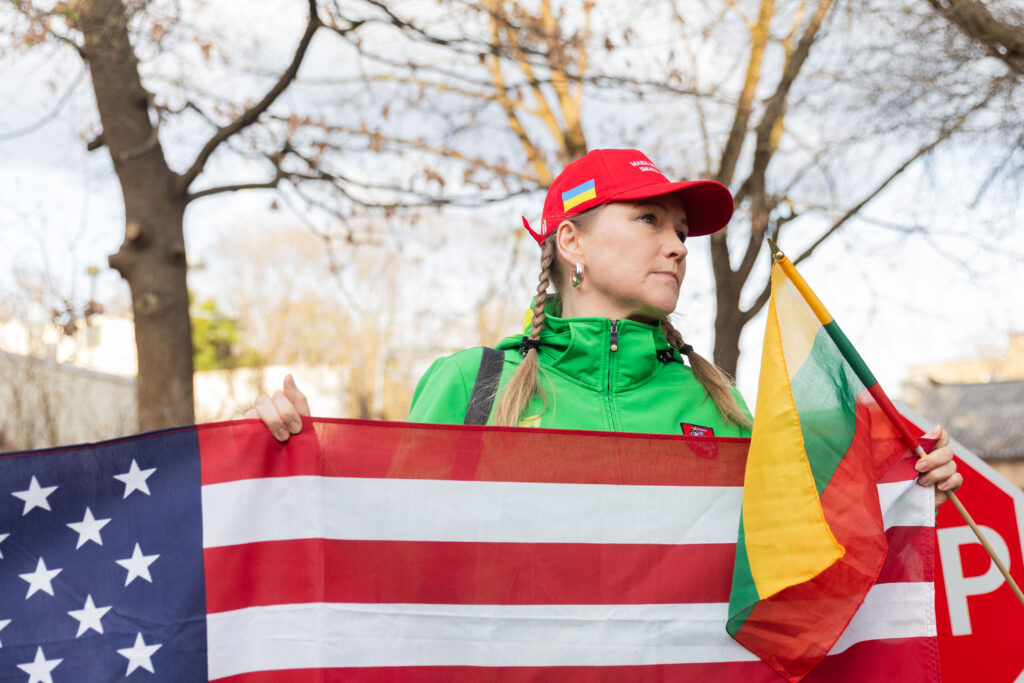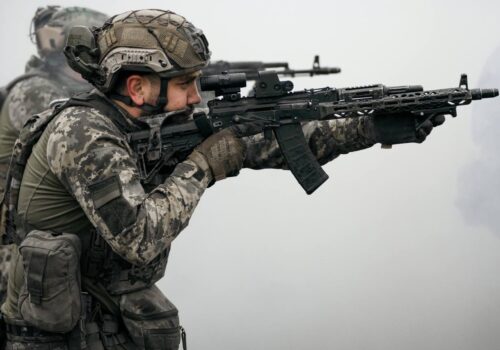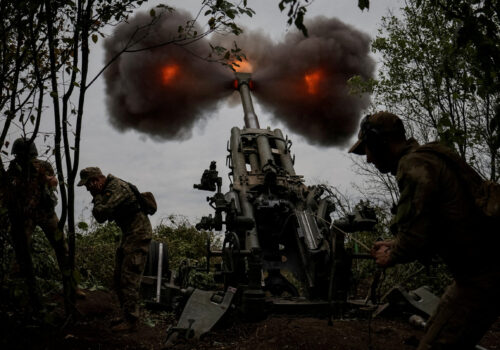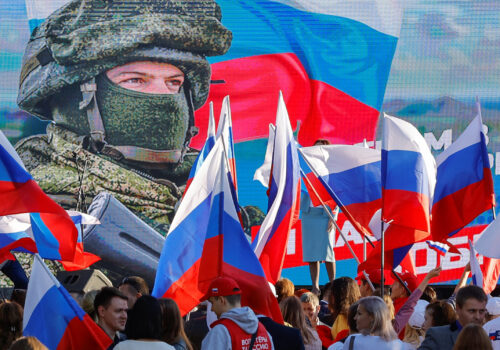Thousands of Lithuanians paid tribute this week to four United States soldiers who died during a training exercise while serving in the Baltic nation. Crowds lined the streets of Vilnius as hearses carrying the bodies of the deceased soldiers made their way to the Lithuanian capital city’s main cathedral for a memorial service before being flown to the United States.
The US servicemen had gone missing a week earlier during training exercises at a Lithuanian military facility close to the border with Belarus. This led to the largest search operation in modern Lithuanian history through the surrounding area of forests and swamps, with military and civilian teams being joined by colleagues from Poland, Germany, and Estonia. Tragically, the four missing United States soldiers were eventually found submerged in a peat bog together with their vehicle.
Stay updated
As the world watches the Russian invasion of Ukraine unfold, UkraineAlert delivers the best Atlantic Council expert insight and analysis on Ukraine twice a week directly to your inbox.
Around one thousand US soldiers have been based at Camp Herkus in Lithuania since 2021. Their presence is part of NATO’s Operation Atlantic Resolve, which involves rotational deployments of troops from member states as part of the alliance’s deterrence strategy on its eastern flank.
The recent deaths of four US soldiers have shocked and saddened the Lithuanian public, underlining the bonds between the country and the United States. For days, the search operation for the missing soldiers gripped the nation of almost three million. “For us, it is more than a duty, it is an emotion. We have experienced trials in our history and therefore we understand well what loss is, what death is, what honorable duty is,” commented Lithuanian President Gitanas Nausėda during events in Vilnius honoring the deceased servicemen.
Eurasia Center events

The tragedy has served to highlight the importance of the NATO troop presence in Lithuania at a time when Moscow’s full-scale invasion of Ukraine has heightened alarm in the region over the threat posed by a resurgent Russia. With the Trump administration now discussing plans to reduce the US commitment to European security and focus more of Asia, there are concerns in Lithuania and other front line NATO member states that Russia may seek to take advance of any weakening of resolve within the alliance.
In March, Lithuanian Foreign Minister Kestutis Budrys traveled to Washington DC with his Estonian and Latvian colleagues to meet with US Secretary of State Marco Rubio and seek assurances regarding the continued United States commitment to the security of the Baltic region. “The Baltic states are quite skeptical about Russia’s intentions. Our intel assessments clearly show that Russia and their instruments of power are all aligned toward war, not toward peace,” commented Latvian Foreign Minister Baiba Braze while in the US.
Lithuania is currently preparing for a dramatic increase in military spending as the country responds to Russia’s expansionist agenda and Kremlin dictator Vladimir Putin’s apparent imperial ambitions. Lithuanian officials unveiled plans in January 2025 to boost the defense budget from just over three percent to between five and six percent starting next year. This increase comes as the Trump White House calls on NATO members to move beyond current guidelines stipulating two percent of GDP and spend significantly more on national security.
Amid heightened geopolitical uncertainty, the recent tragic events involving US troops stationed in Lithuania have helped unite the two countries. “We cannot thank our allies and fellow service members enough, especially the Lithuanians, who spared no resource in support of this mission,” commented Major General Curtis Taylor, the commanding general of the United States 1st Armored Division, in the wake of the tragedy. “Together, we delivered on our promise to never leave a fallen comrade.”
Agnia Grigas is a nonresident senior fellow at the Atlantic Council’s Eurasia Center and the author of Beyond Crimea: The New Russian Empire and other books.
Further reading
The views expressed in UkraineAlert are solely those of the authors and do not necessarily reflect the views of the Atlantic Council, its staff, or its supporters.

The Eurasia Center’s mission is to enhance transatlantic cooperation in promoting stability, democratic values, and prosperity in Eurasia, from Eastern Europe and Turkey in the West to the Caucasus, Russia, and Central Asia in the East.
Follow us on social media
and support our work
Image: BNS/Scanpix via Reuters Connect




